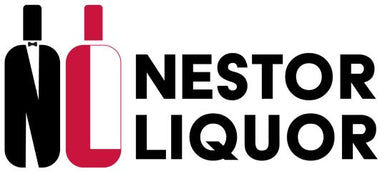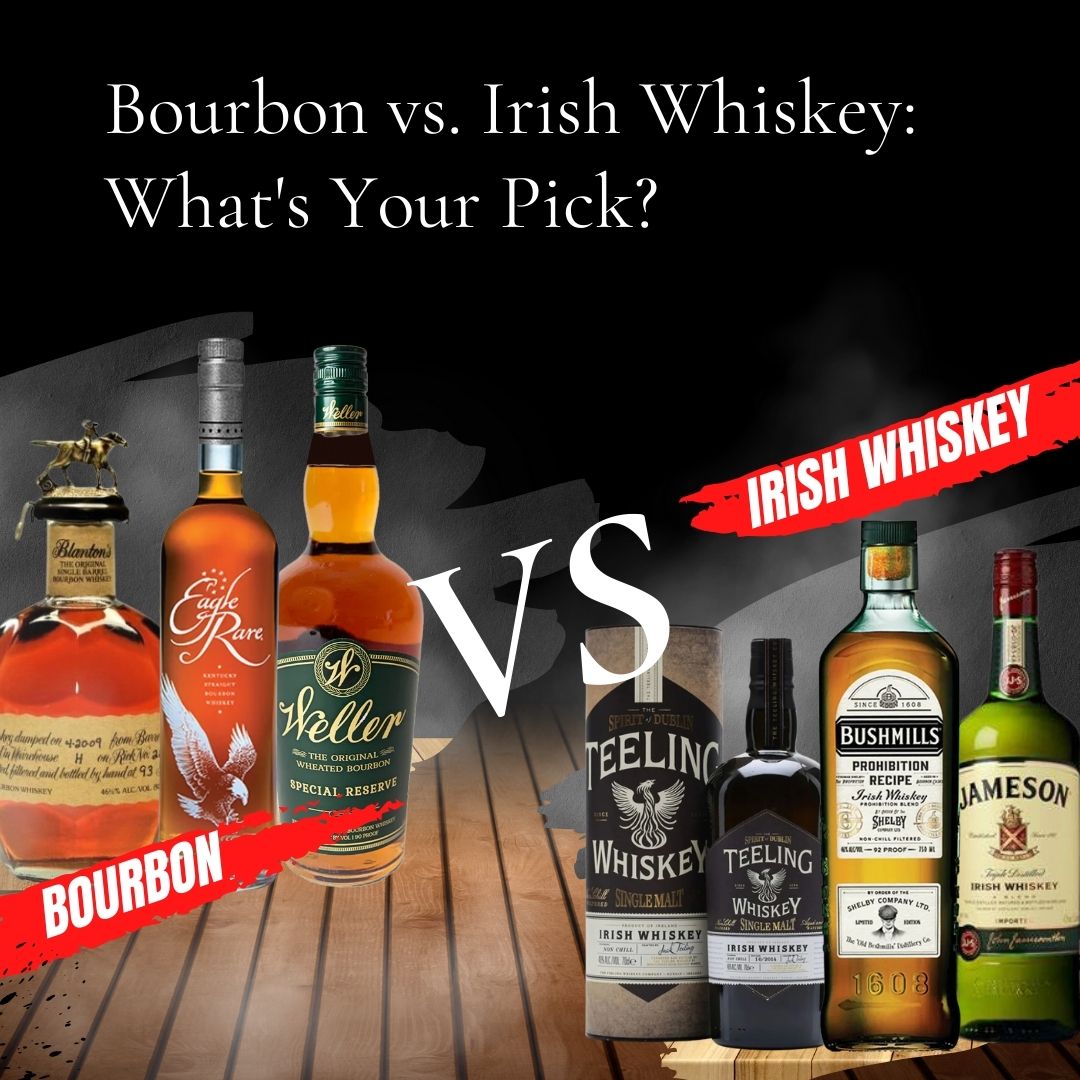Whiskey encompasses diverse styles, including bourbon and Irish whiskey. While both are grain-based spirits aged in oak casks, there are several differences between the two whiskeys. So, what's the difference between bourbon and Irish whiskey? In this guide, we'll explore the unique qualities that set the two spirits apart.
What Is Bourbon?
Bourbon is the quintessential American whiskey. Originating from Kentucky, bourbon is crafted primarily from corn, giving it a distinctive sweetness. It must be aged in new, charred oak barrels, a process that imbues it with its rich, smooth flavor profile.
There are various types of bourbon. Here are some of the popular variants:
Traditional Bourbon
Traditional bourbon primarily consists of corn (usually over 70%), with the remaining percentage containing a mix of barley and rye. This grain composition gives traditional bourbon a sweet and spicy flavor.
Straight Bourbon
Straight bourbon is required to undergo aging in charred oak barrels for a minimum of two years. It also shouldn't contain additives or colorants.
Kentucky Bourbon
As the name suggests, Kentucky bourbon must be produced in Kentucky, which accounts for nearly 95% of bourbon production. Kentucky bourbon must be aged for at least a year.
High-Rye Bourbon
A high-rye bourbon has a higher rye concentration in the mash bill than standard bourbons. Generally, high-rye bourbons contain 20-35% rye, while traditional bourbons contain 12-15%. This high-rye content gives high-rye bourbon a spicier flavor with a sharper bite.
Wheated Bourbon
Wheated bourbons contain both corn and barley in the mash bill. However, unlike other bourbons that contain rye, they substitute rye with wheat. This gives wheated bourbon a more mellow flavor than other bourbon types.
What Is Irish Whiskey?
As suggested by its name, Irish whiskey originates from Ireland. Unlike its more intense cousin, Scotch, Irish whiskey is triple-distilled, resulting in a smoother, cleaner taste. The law requires that it undergoes aging in wooden casks for a minimum of three years before it can be bottled.
There are four main types of Irish whiskey: single malt, single grain, single pot still, and blended. Here's an overview of each:
Single Malt
Single malt Irish whiskey is made entirely from malted barley and distilled at one distillery. It is distilled in pot stills.
Single Grain
Single grain Irish whiskey consists of up to 30% malted barley with a mix of other grains (typically wheat or corn). It is distilled at a single distillery in a continuous still.
Single Pot Still
Single pot still Irish whiskey consists of up to 30% malted and unmalted barley. It is distilled at a single distillery in a pot still.
Blended
Blended Irish whiskey contains both single malt and single grain whiskies. It can be distilled in pots or column stills at one or multiple distilleries.
Bourbon vs. Irish Whiskey: What's the Difference?
Now that you know what bourbon and Irish whiskey are, let's explore the key differences that set these two spirits apart:
Ingredients
At the heart of any whiskey is its mash bill, the blend of grains used in fermentation. For bourbon, the mash must contain at least 51% corn, with the remainder typically a mix of rye, barley, or malt. This high corn content is responsible for bourbon's signature sweetness.
In contrast, Irish whiskey contains a variety of grains in the mash bill, like corn, wheat, and barley. However, barley remains the dominant force in Irish whiskey.
Distillation Techniques
Bourbon is typically double distilled using column stills, efficiently separating the alcohol from the mash. This distillation method helps preserve the corn's sweetness, producing a mellow spirit with a smooth finish.
Conversely, most Irish whiskies are triple distilled. This extra step in the distillation process contributes to the smooth and light character Irish whiskies are renowned for.
Aging
It is mandatory for bourbon to be aged in new, charred American oak barrels. This charring process plays a crucial role in bourbon's development, imparting flavors like vanilla, caramel, and spice while contributing to its distinct amber color.
There's no minimum aging period for bourbon, but to be labeled as ''straight'' bourbon, it needs to be aged for at least two years. However, many premium expressions boast longer aging periods.
On the other hand, Irish whiskey is more flexible, ageing in various previously used barrels, including bourbon, sherry, or port casks. This flexibility gives Irish whiskies diverse flavor profiles, ranging from fruity and spicy to nutty and creamy.
The minimum aging requirement for Irish whiskey is three years, though many producers age their expressions for longer to give them greater depth and character.
Pairing Bourbon and Irish Whiskey With Food

Pairing bourbon or Irish whiskey with food can enhance your culinary experience. Bourbon pairs well with sweet and smoky dishes, making it a delightful companion for grilled meats, barbecues, and desserts like chocolate cake or pecan pie.
Similarly, Irish whiskey, with its lighter and smoother flavor profile, pairs well with a variety of foods, such as seafood, creamy dishes, or mild cheeses.
Top Bourbon Brands
Bourbon is a versatile spirit you can enjoy neat, on the rocks, or in cocktails. Looking to indulge in a high-quality bourbon? Here are some highly regarded bottles you might want to add to your collection:
Blanton's Single Barrel Bourbon
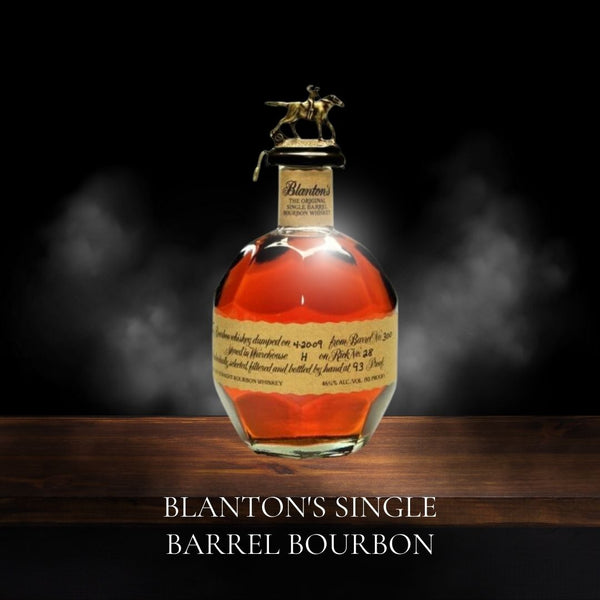
Blanton's Single Barrel Bourbon is an iconic whiskey renowned for its prominent notes of vanilla, caramel, honey, baked spices, and oak. It is bottled from a single barrel, giving it exceptional character depth, making it a favorite among whiskey connoisseurs looking for a premium drink.
Eagle Rare 10 Year Bourbon
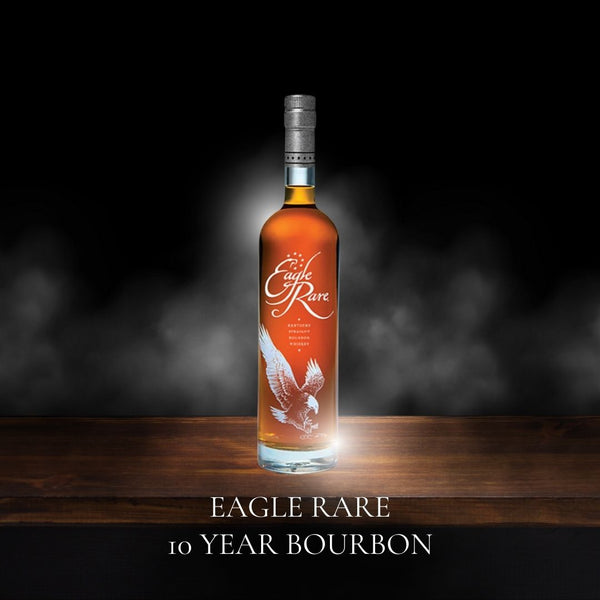
This bourbon boasts a rich and complex flavor profile, featuring notes of toffee, orange peel, leather, tobacco, and herbs. If you want a whiskey with a smooth, well-rounded character and satisfying finish, you can't go wrong with Eagle Rare 10 Year Bourbon.
W.L. Weller Special Reserve Bourbon Whiskey
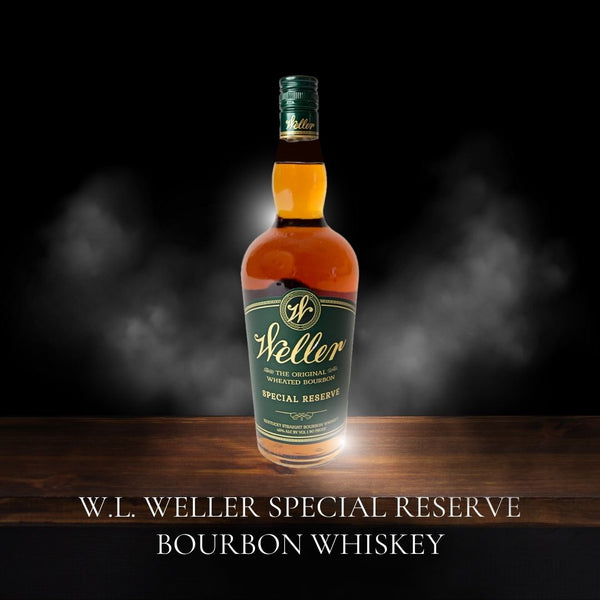
This wheated bourbon offers a softer, smoother-tasting experience with delightful hints of honey, caramel, and baked spices. If you're new to bourbon and searching for an approachable whiskey, W.L. Weller Special Reserve Bourbon is a stellar choice.
Top Irish Whiskey Brands
Ireland's whiskey scene boasts a vibrant selection, catering to diverse palates. Here are some top Irish whiskey options:
Jameson Irish Whiskey
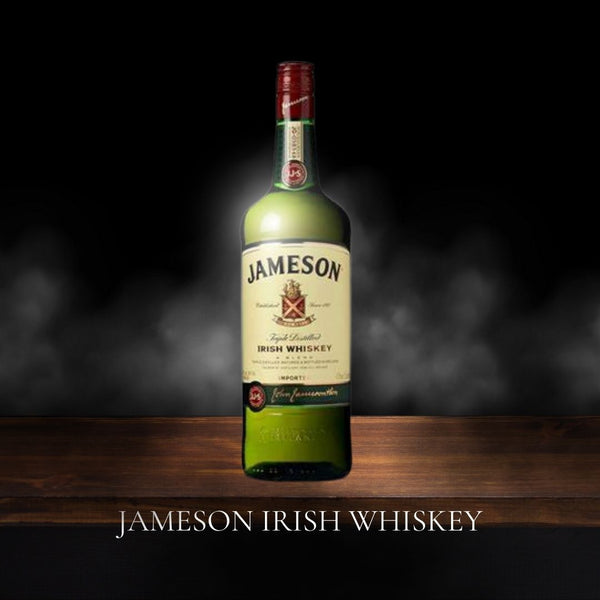
Jameson is the quintessential Irish whiskey. Its triple distillation and aging in ex-bourbon casks result in a well-balanced profile with spicy, nutty, and sweet notes. Whether you're a newcomer or whiskey connoisseur, Jameson Irish Whiskey is an approachable drink perfect for sipping neat, on the rocks, or in classic cocktails like Irish Coffee.
Bushmills Peaky Blinders Prohibition Recipe
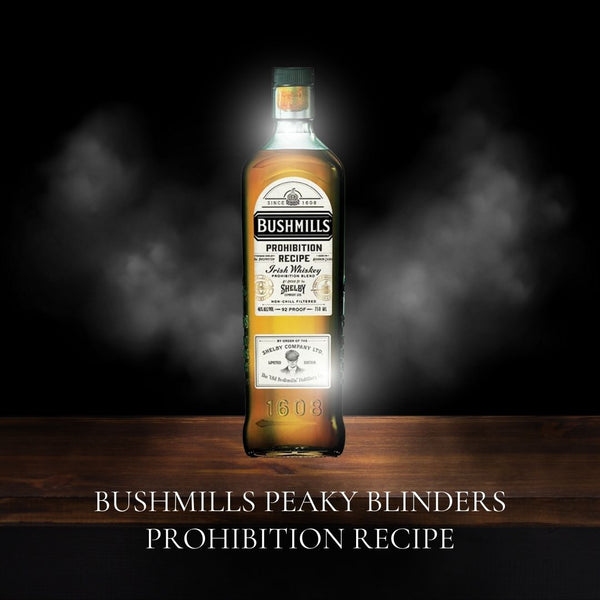
This expression is a blended whiskey that was released for the final season of the critically acclaimed TV show Peaky Blinders. It's aged in ex-bourbon casks and has a rich and complex flavor profile with honey, dried fruit, and vanilla notes. If you want to indulge in a well-balanced Irish whiskey with a soft, buttery feel, Bushmills Peaky Blinders Prohibition Recipe is a great option.
Teeling Single Malt Irish Whiskey
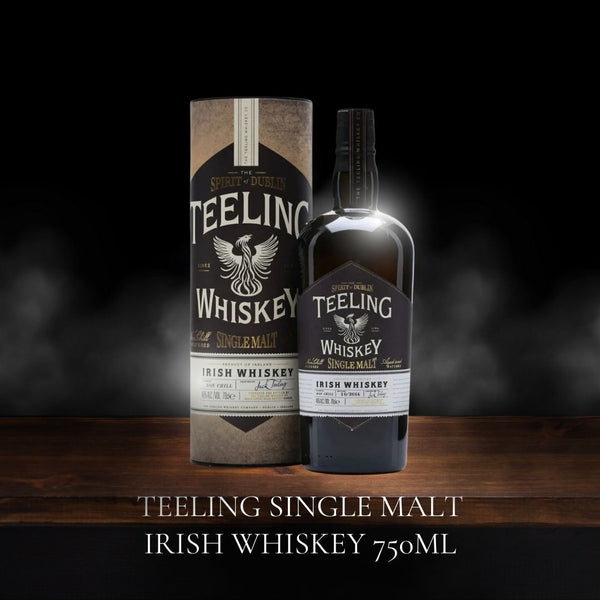
Teeling Single Malt Irish Whiskey is an award-winning whiskey made entirely from malted barley. Aged for over two decades in various wine casks, including sherry, port, and white Burgundy, Teeling Single Malt Irish Whiskey has a complex flavor profile that spans from fruity and floral to deep and woody. If you want to sip on a premium Irish whiskey, you can't go wrong with this expression.
Conclusion
While Irish whiskey and bourbon share the title of ''whiskey,'' they possess distinct personalities influenced by their ingredients, production methods, and country of origin. Whether you're drawn to the sweet and mellow flavors of bourbon or the diverse flavor profiles of Irish whiskey, both spirits offer an exceptional drinking experience.
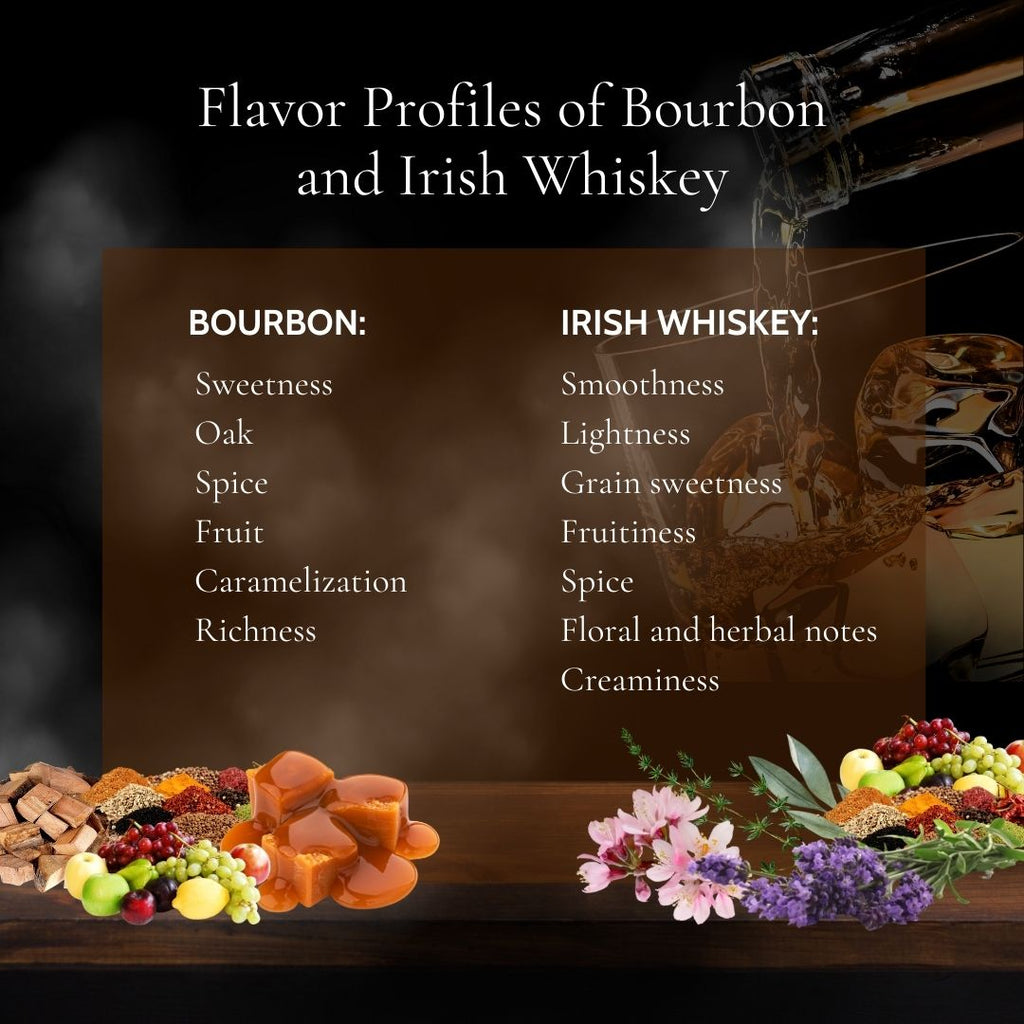
Check out our store for a wide collection of high-quality and coveted bourbon and Irish whiskey expressions.
FAQs
Is Bourbon or Irish Whiskey Considered Smoother?
Generally, Irish whiskey is known for its smoothness due to the triple distillation process. However, bourbons aged for several years can also be relatively smooth on the palate. Ultimately, smoothness is a subjective experience, so trying both whiskies is the best way to determine your preference.
Which Spirit Is Better for Beginners?
Both bourbon and Irish whiskey can be great options for beginners. Irish whiskey has a lighter and smoother profile than other whiskey variants like Scotch, while bourbon has a mellow taste. However, bourbon might be more appealing if you enjoy sweeter flavors due to its high corn content.
Is There a Significant Price Difference Between Bourbon and Irish Whiskey?
Prices can vary depending on the brand, age, and rarity of the expression. Generally, both whiskeys offer a variety of expressions, from affordable options to premium expressions.
Can I Use Bourbon and Irish Whiskey Interchangeably in Cocktails?
While you can experiment with bourbon and Irish whiskey in cocktails, their distinct flavor profiles mean you can't always substitute one for another. As a rule of thumb, follow the cocktail recipe's specific spirit recommendation for best results.
Where Can I Find Quality Bourbon and Irish Whiskey Online?
Many well-stocked liquor stores carry a wide selection of bourbons and Irish whiskeys. Check out our shop for a wide selection of high-quality bourbons and Irish whiskeys from popular brands.
